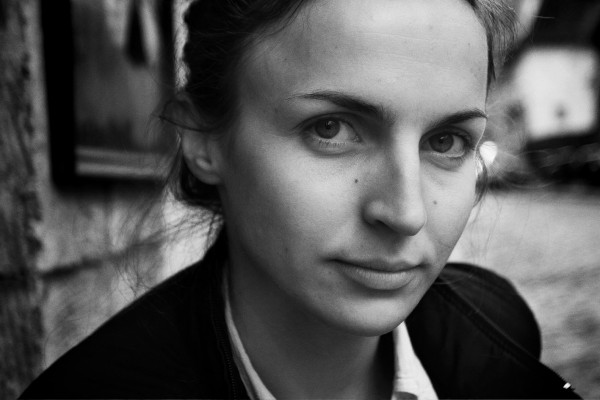Climate Change in the Mekong Delta
Climate Change in the Mekong Delta
Viviane Dalles
February 12, 2021
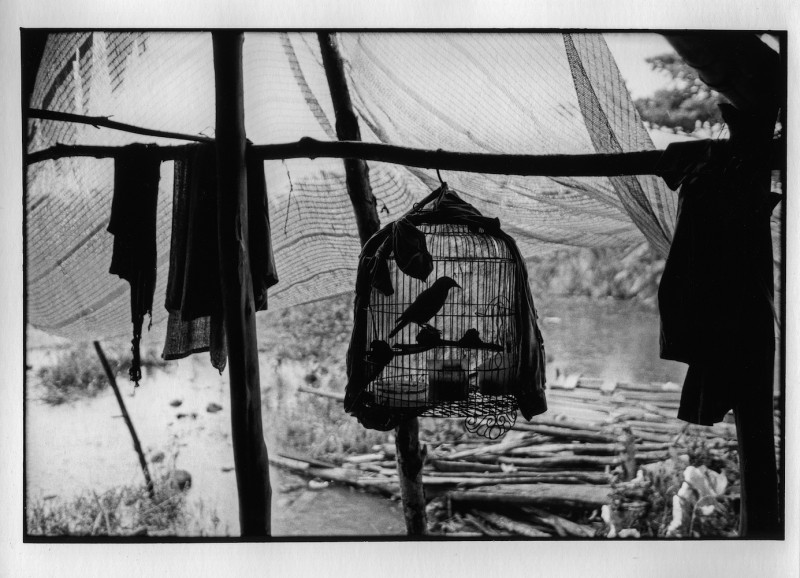
Farmers’ back yards. U Minh, Mekong Delta, Vietnam. June 2018
Viviane Dalles met small-scale producers in the Mekong Delta, whose lands are threatened by the impact of climate change. She observed their everyday lives and highlighted their living conditions and uncertain future.
LFI:Could you describe the motivation behind your project? Do you have a personal connection to the Mekong Delta?
Viviane Dalles:I worked in South-east Asia when I started my career. I was based in India and then in Thailand. At that time, I didn’t have the opportunity to explore Vietnam. Years later, I read about this issue and, thanks to a grant from the French Ministry of Culture, I was able to go there.
What do you want your images to evoke in the viewer?
The public are unaware of the issues resulting from climate change in that part of the world, because it is very difficult to work as a photographer or journalist in Vietnam. My aim was to describe the situation by photographing the daily lives of the locals, and by offering a glimpse into the changes that are decisive for the future of the Mekong Delta and its population.
What is your opinion on the future of the area?
If the level of water continues to rise, they will have to turn to shrimp farming; or if they can grow rice, they will use more pesticides to produce three harvests a year. Farmers are under a lot of pressure, and don’t have a choice. They cannot really do what they want on their own land. They definitely need more financial support.
Why did you prefer black and white photography for this project?
I actually started the project in colour; but once I was out there in the field, I realized it was not appropriate. Vietnam is a country where the colours are amazing. It’s very difficult to describe this sensitive project in colour: I realised that the subject was losing out in favour of the beauty of the landscape. In black and white, it’s more straightforward; you focus on the meaning of the photograph.
Apart from this reason, I’ve been thinking about going back to black and white film for years. At the end of 2020, I set up my own lab at home. I’m looking forward to doing more work with my analogue camera. (Interview: Danilo Rößger)
Introduction text and all images on this page: © Viviane Dalles
Equipment: Leica M6, Summicron-M 50 f/2 Asph, Summicron-M 35 f/2 Asph
Viviane Dalles+-
Viviane Dalles, was born in France in 1978, and completed her Masters at the National School of Photography in Arles, in 2003. At the beginning of 2005, following the tsunami in the Indian Ocean, she quit her job at the Magnum Photos archives and bought a plane ticket to India. That first reportage changed her life. At that point, she made up her mind to become a documentary photographer. Viviane has covered stories in France, India, Nepal, Cambodia, Bangladesh, Afghanistan, Thailand, Bhutan, Australia, New Zealand and the United States of America. She has been based in France since 2012. Her work is regularly published in magazines such as GEO, VSD, ELLE, Vanity Fair, Nouvel Obs or The New York Times. More

Farmers’ back yards. U Minh, Mekong Delta, Vietnam. June 2018
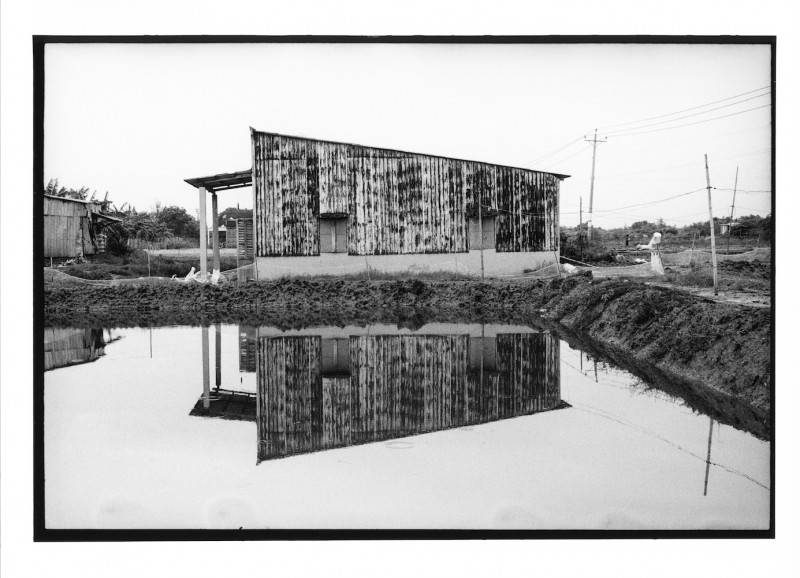
Fisherman’s home in front of a shrimp farm. Bac Lieu, Mekong Delta, Vietnam. June 2018
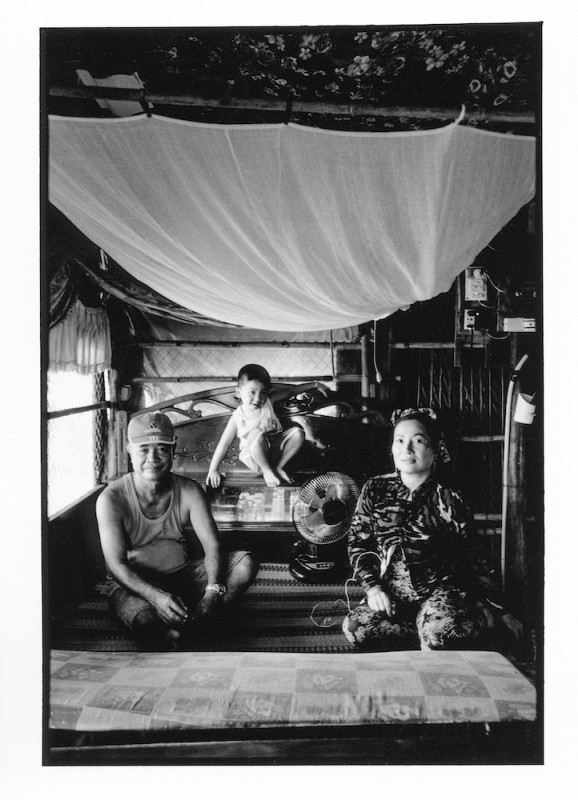
The 57 year-old fisherman Tong, at home with his wife Tham (47) and their son Hien (5). Bac Lieu, Mekong Delta, Vietnam. June 2018
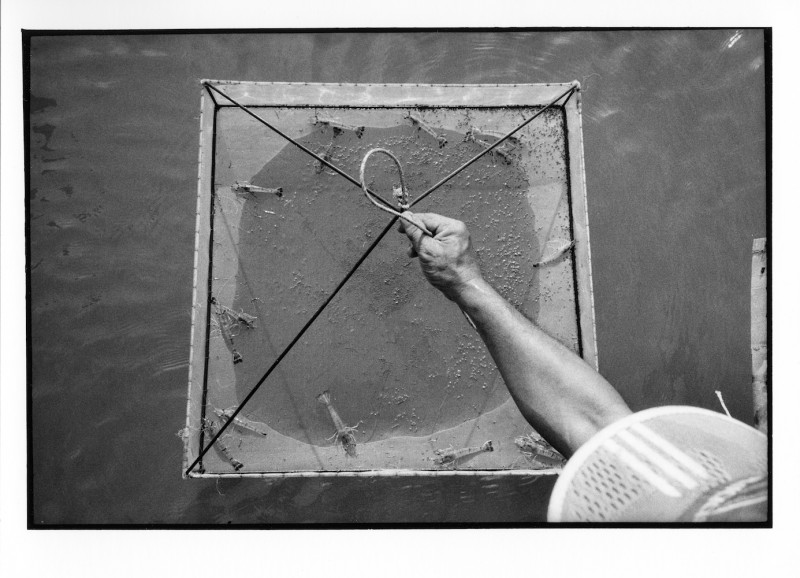
The shrimps remain for seven months on average, but they can be sold at any time depending on market prices. Bac Lieu, Mekong Delta, Vietnam. June 2018
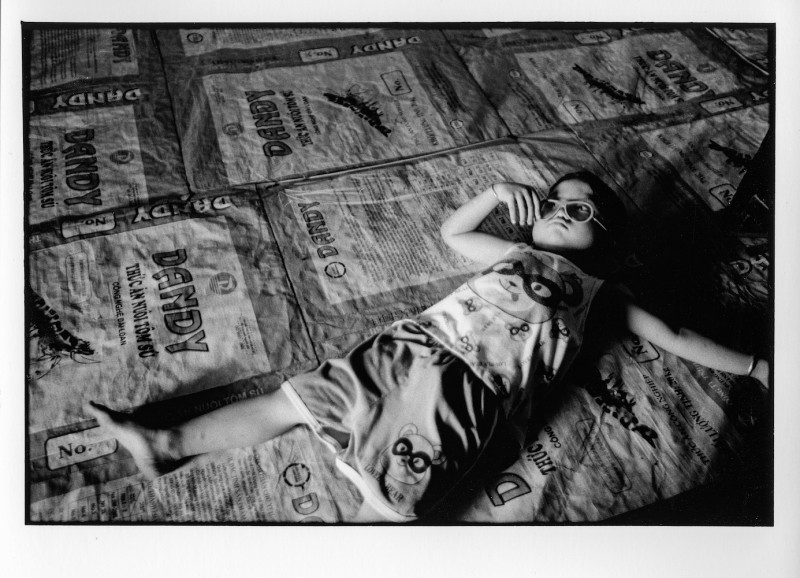
Hien, lying down in the main room of his home. The floor is covered with the bags of shrimp feed. Bac Lieu, Mekong Delta, Vietnam. June 2018
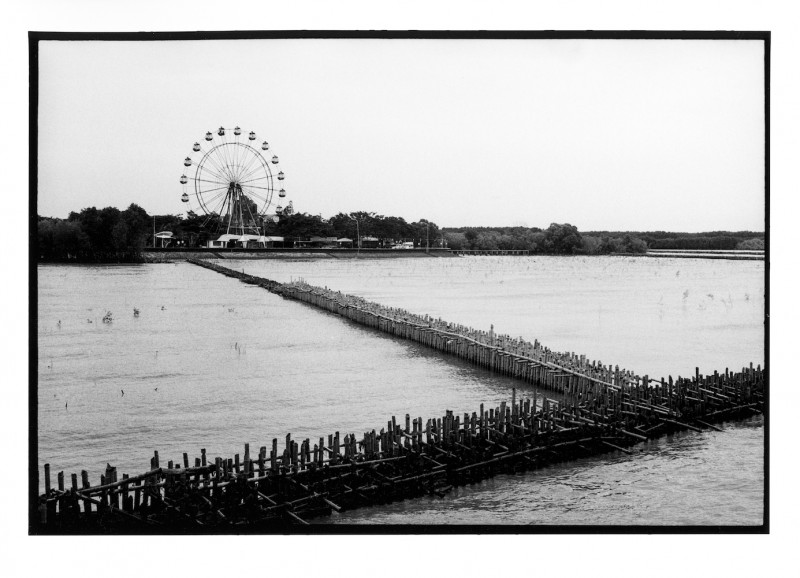
Dam with tree plantations (Duoc), to limit the rising levels of salt water. Bac Lieu, Mekong Delta, Vietnam. June 2018
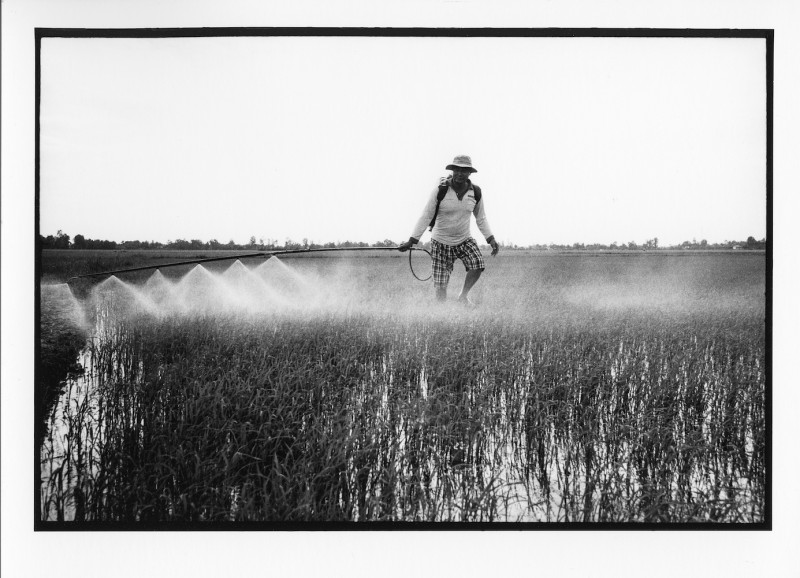
Agriculturist pulverising pesticides in his paddy fields. Vinh Long, Mekong Delta, Vietnam. June 2018
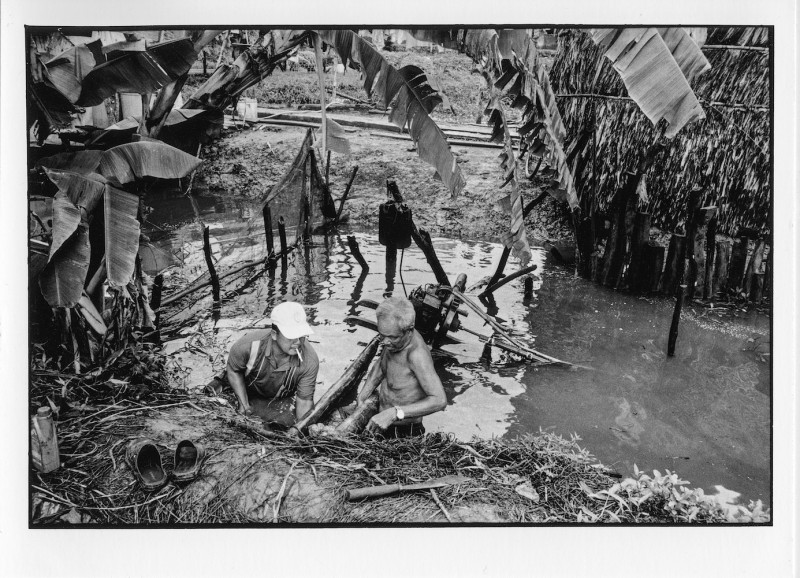
After flooding one or other of their paddy fields, neighbours help each other to start the pump and evacuate the water towards the canal. U Minh, Mekong Delta, Vietnam. June 2018
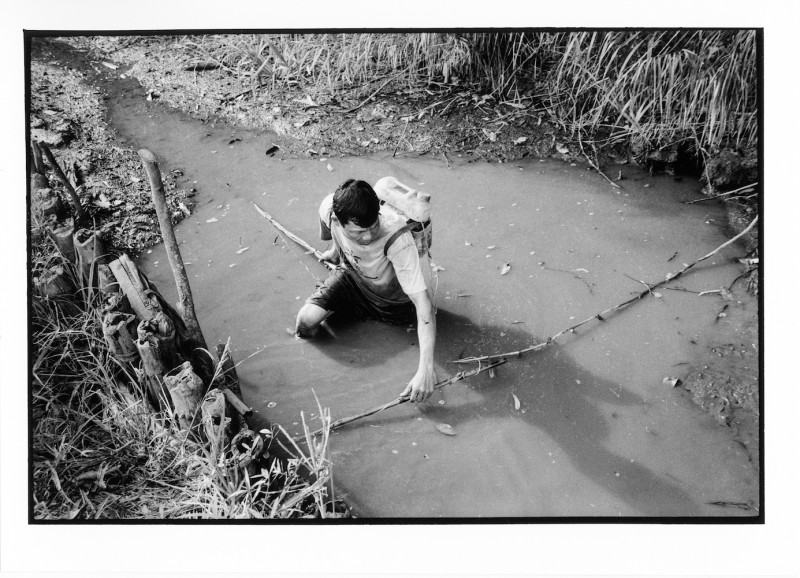
Having few resources, this farmer fishes illegally with the help of electric cables along the paddy fields, despite the fact that the water is polluted due to the use of pesticides. Vinh Long, Mekong Delta, Vietnam. June 2018
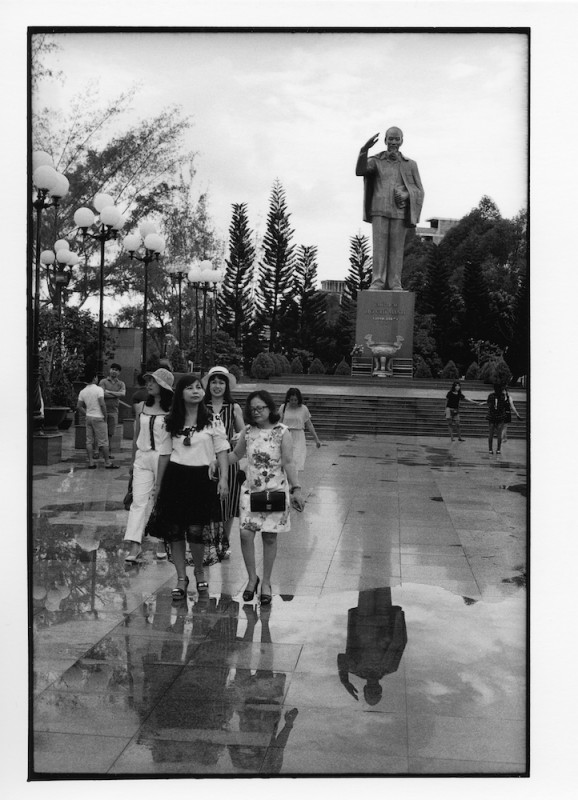
Tourists in front of the statue of Hồ Chí Minh. Can Tho, Mekong Delta, Vietnam. June 2018
